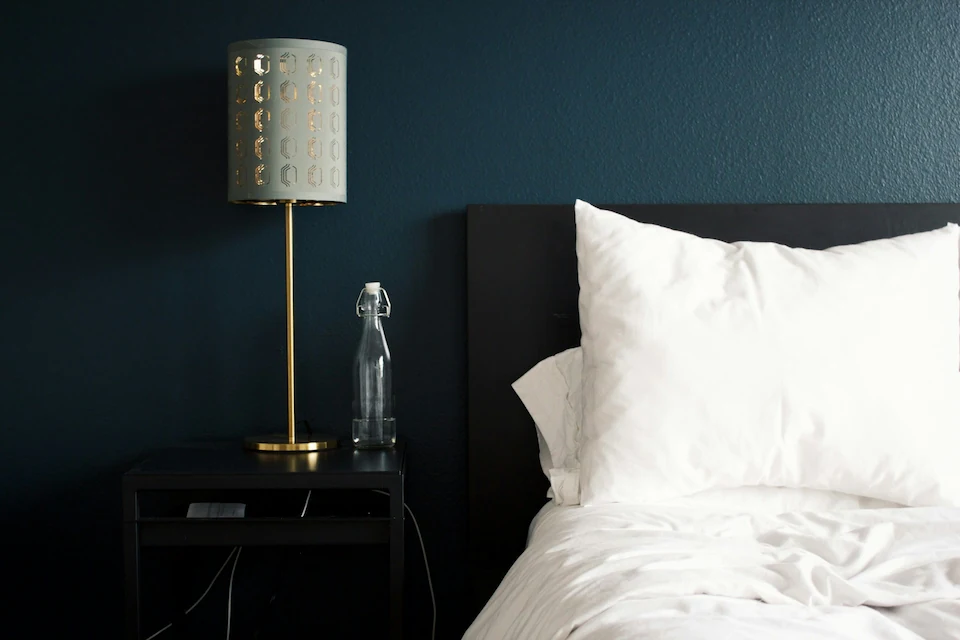Introduction
The year 2025 marked a significant change in the hotel industry through the increased use of automated Property Management Systems (PMS). Hotels implementing these systems have seen clear benefits:
- Reduced labour costs: Automated scheduling tools have been shown to save on average 5-10 % of labour costs by aligning staffing with real demand. Source
- Improved guest satisfaction: Modern PMS solutions create smoother guest experiences through features such as online check-in and check-out, mobile keys and personalised communication, leading to increased guest satisfaction. Source
These advances show how automated PMS systems play a crucial role in reducing operational costs and improving the guest experience.
The next level of automated PMS
PMS automations now handle tasks we previously didn't think possible. From predicting maintenance needs before equipment breaks down, to adjusting room rates in real time based on over 50 market factors - these systems are changing the way hotels are run.
The change is significant. Small hotels can now compete with large chains. Large establishments can be run with smaller staffs. Guests can check in, make enquiries and check out without human interaction - unless they prefer it themselves.
This is not just about saving time or money. It's about creating better experiences. When systems handle routine tasks, staff can focus on what really matters: genuine interactions with guests.
How automation is changing hotel operations
In this detailed analysis, we review the main automation advances in 2025:
- AI-driven pricing: System that dynamically adjusts room rates based on real-time data and market analysis.
- Predictive maintenance: Technology that identifies problems before they occur, reducing unexpected downtime and maintenance costs.
- Unified data management: Integrated systems that bring all aspects of hotel operations together in a single platform.
You will gain insight into how these tools work together to reshape property management and why some hotels are seeing record profits while others are lagging behind.
The future of hotel management is already here. Let's explore what it looks like.
Advanced automation features in PMS to know
- New 2025 automation tools are transforming Property Management Systems (PMS)
- Significant efficiency improvements through reduced manual tasks
- Practical applications show increased productivity
PMS, or Property Management System, refers to tools and technologies that automate various management tasks in the hotel and property industry. This helps hotels and property managers streamline operations and improve the guest experience. PMS systems typically handle bookings, billing, customer relationship management and inventory management.
1. Automated data
Automated scheduling is a feature that will become invaluable in 2025. This tool is revolutionising the way hotels and property managers handle daily scheduling tasks. Unlike traditional systems that require time-consuming manual input, automated scheduling uses rules to create the necessary tasks for your hotel - either as a recurring activity or a one-off task.
Implementing automated scheduling systems in hotels offers several benefits. Through automation, hotels can significantly reduce manual scheduling errors, allowing HR staff to focus on more strategic tasks. Automation also contributes to higher employee satisfaction and reduced staff turnover. For more insights, read about the benefits of automated scheduling, labour management in hotels, and how scheduling automation improves efficiency.
Modular Visit's platform streamlines staff workflows through task automation. The system can automatically generate tasks based on specific events. For example:
- If a guest books an extra bed, the cleaning staff is immediately tasked with placing it in the room.
- Additional services and upselling: when a guest orders additional services such as flowers or champagne in the room, the relevant details are automatically assigned to the staff responsible for preparing for the guest's arrival.
- Recurring tasks can be created automatically. For example, smoke alarms should be checked monthly or the lawn should be mowed weekly.
Tasks can also be marked as urgent to signal priority to the recipient.
2. Dynamic price optimisation
Dynamic price optimisation is a prominent feature that adapts pricing strategies based on current market conditions, supply and demand. This method uses advanced algorithms to set room rates that maximise revenue while remaining competitive. It's not just about raising prices - it also includes strategic discounts to ensure a high booking rate.
Many businesses have successfully utilised this feature. They found that adjusting prices in real time based on local events or seasonal trends helped keep occupancy rates stable. This is consistent with the findings of a study highlighting the benefits of optimising PMS for maximum revenue generation.
3. improved guest communication
In 2025, advanced guest communication features offer property owners and hotels a more interactive dialogue with their guests. Automated messaging systems, integrated with PMS, enable constant communication both during and after the stay. This includes booking confirmations, check-in instructions and personalised promotions.
These improvements not only increase communication, but also create a deeper relationship with guests, which in turn increases their satisfaction. By automating standardised communications, hotels and properties can provide quick responses and more personalised service, improving the guest experience.
4. Intelligent reporting
Intelligent reporting is now an indispensable feature of modern PMS systems. This feature collects and analyses large amounts of data, providing useful insights into operations, guest preferences and financial metrics. Some systems go beyond traditional reporting by using AI to predict trends and create clear, visually easy-to-understand analyses.
Advantages and disadvantages? The system is effective and provides a comprehensive overview of the health of the company. However, relying too much on automated data analysis can reduce human intuition in decision-making. Nevertheless, the advantages usually outweigh the disadvantages, as it creates a more data-driven approach to business management.
5. Seamless mobile integration
The increasing use of mobile technologies has paved the way for mobile integration into PMS systems. Guests can now manage their hotel experience via apps, from booking and payment to room service orders. This feature increases convenience for both guests and hotel staff, by enabling real-time updates and interactions directly via mobile.
Mobile integration is in line with the growing demand for digital solutions in the hospitality industry. It offers an intuitive and user-friendly platform. However, some argue that this can pose security risks for data management. To minimise these risks, measures such as encryption and secure login protocols are crucial.
The future of mobile integration looks promising, and we can expect continuous improvements and new innovations in this field.
Guests today have higher expectations. Let us show you how we can take your business to the next level.
Before we delve into PMS automation, it's worth noting that this builds on some basic PMS principles. If you're just starting out with PMS or want to refresh your understanding, our comprehensive guide on understanding of PMS systems give you the foundation you need. For those of you who are already familiar with PMS, let's continue exploring the automation of PMS systems.
1. utilise the latest integration trends in PMS for better results
- Exploring new integration trends for 2025
- Understanding how integration simplifies business
- Learn how it affects the customer experience
1. cross-platform integration
Seamless integration is crucial in today's fast-moving business environment. In 2025, Property Management Systems (PMS) have embraced cross-platform integration more than ever. This allows different software and tools to communicate with each other, reducing manual input and errors. Businesses can now work more efficiently, ensure data consistency and increase productivity. Cross-platform functionality is about ensuring that the PMS can work with other tools, such as accounting systems, customer relationship management (CRM) systems and even social media platforms. These integrations are tailored to specific business needs, creating bespoke solutions that optimise performance across departments.
Take, for example, a hotel that integrates its PMS with popular travel booking sites. This means instant updates and accurate management of reservations, saving time and improving service quality. Customers get faster responses and more accurate information. This approach ensures a smooth experience for all involved.
2. Unified data management
Unified data management (UDM) is another exciting development for 2025. UDM integrates all data sources within a company, making information easily accessible and accurate. This improves decision-making as companies get a clearer picture of their business. It eliminates isolated data sets, or 'silos', where information gets stuck in one place and cannot be used effectively in other areas. Unified data management leads to easier data management and improved security as all information flows uniformly across departments.
When organisations take advantage of this technology, it becomes easier to make informed decisions. Insights can be easily accessed, saving time and resources. In addition, the risk of errors is reduced because everyone is working from the same data set. One example of this is large hotel chains that manage operations in multiple locations. Now everything from bookings to guest preferences can be centralised and easily accessible, improving customer service and operational efficiency.
The past year has seen rapid progress in these areas. Each month has seen new partnerships and technological improvements. You can find more comprehensive insights on this topic in our article on Functions of the PMS system.
Going forward, organisations should explore these integration trends to remain competitive. Investing in cross-platform functionality and unified data management will streamline operations and improve customer interactions. The next 12 months are likely to bring further improvements, making it important for companies to be adaptive and forward-thinking. Adopting these advancements sooner rather than later will ensure businesses remain at the forefront of their industry.
Modular Visit's platform offers a unified solution for everything needed to run a successful hospitality business. From PMS, CRM, POS to channel management, automated communication and web-based booking systems (WBE).
WBE PMS Self-service Dialogue Analyses POS
All online bookings are managed in the same platform as the PMS. A single true source for your data.
A powerful platform that combines your PMS, WBE, POS, CRM and channel manager. All systems and data in one place.
Checking in and out, making payments, updating information, adding extra services. Everything is easily managed by the guest.
Improve your guest communication. Information, reminders, suggestions for extra services and marketing. All easily automated in our powerful communication suite.
Reporting tools with great flexibility to create the reports and statistics you need.
Payments on site, online payments. Card, Swish, bank transfer, Apple Pay, etc. All included.
A platform.
For all systems.
Online booking in your PMS.
All online bookings are managed in the same platform as the PMS. A single true source for your data.
All in one place.
A powerful platform that combines your PMS, WBE, POS, CRM and channel manager. All systems and data in one place.
Let the guests help themselves.
Checking in and out, making payments, updating information, adding extra services. Everything is easily managed by the guest.
Communication that engages.
Improve your guest communication. Information, reminders, suggestions for extra services and marketing. All easily automated in our powerful communication suite.
Get insights from your data.
Reporting tools with great flexibility to create the reports and statistics you need.
All types of payments.
Payments on site, online payments. Card, Swish, bank transfer, Apple Pay, etc. All included.
How AI in PMS systems is changing the playing field
- How AI improves the efficiency and accuracy of PMS systems
- Predictive maintenance reduces equipment downtime
- AI chatbots improve customer interactions
1. predictive maintenance
AI in Property Management Systems (PMS) plays a crucial role in detecting problems at an early stage. Using machine learning, AI analyses large amounts of real-time data to identify potential problems before they become serious. The idea is to anticipate when systems or machines are at risk of failing and take preventive maintenance measures. This technology utilises sensors from the Internet of Things (IoT) to continuously collect data and create accurate predictive models. The benefit is to minimise unexpected downtime, which can otherwise be costly and disruptive.
One of the main benefits is significantly reduced downtime. By identifying problems in advance, organisations can plan maintenance during off-peak periods, reducing the impact on daily operations.
2. AI-driven customer interactions
AI is transforming customer interactions within PMS systems through advanced chatbots and support features. These AI-powered chatbots handle routine customer queries, freeing up staff time for more complex tasks. Automation not only improves response times, but also ensures 24/7 availability - a crucial feature in property management and hospitality.
Customer satisfaction is the focus here. AI chatbots have significantly improved the user experience by reducing waiting times. This rapid responsiveness is crucial for meeting customer expectations and maintaining engagement.
3. improved decision-making with predictive analytics
The role of AI extends beyond maintenance and customer service to improving decision-making in PMS systems. Predictive analytics leverages historical data and machine learning to anticipate future trends and provide insights that inform strategic decisions. This data-driven approach improves decision-making accuracy and helps property managers optimise all aspects of their business.
AI-powered systems can provide forecasts on occupancy rates, revenue and even energy consumption patterns, enabling more informed business decisions. The value of data is transformative, ensuring that strategies are based on real trends rather than assumptions. Such insights are invaluable, especially in competitive markets where foresight can be critical to success.
However, predictive analytics requires a balanced application. While it offers great benefits, the quality of the data and the reliability of the models must be continuously evaluated. Companies should complement AI-generated insights with real-world observations to ensure that decision-making remains realistic.
4. AI and real-time feedback systems
An often underestimated AI feature of PMS is real-time feedback systems. This technology allows for direct and immediate communication, enabling users to adjust their services and strategies proactively. Real-time feedback creates a higher degree of responsiveness and adaptability - qualities that are crucial to staying competitive.
An AI-assisted PMS system integrates real-time feedback into daily operations. This allows staff to quickly identify areas that need improvement and creates a culture of continuous development. For example, hotels using AI-powered systems can increase customer satisfaction by immediately addressing shortcomings highlighted by guests.
These systems also help to improve the internal work environment by providing managers with insights into staff effectiveness and engagement. This reflects the growing trend towards data-driven management, where the focus is on productivity and employee satisfaction.
5. AI-driven resource allocation
Another significant AI improvement is smart resource allocation. AI-powered solutions optimise the allocation of staff and materials, ensuring that resources are used in the best possible way. By analysing large amounts of data, AI can identify trends and realistically adjust resource needs to avoid both over- and under-utilisation.
Such initiatives help property managers maximise productivity while reducing waste. For example, a hotel can use AI to adjust cleaning schedules based on occupancy, ensuring efficient use of cleaning staff. These adjustments lead to significant cost savings and better resource utilisation.
However, these systems also present some challenges. Implementing AI-driven resource allocation requires an initial investment and a reliance on technology over traditional methods. Businesses need to weigh the benefits of automation against the risk of technology dependency and ensure that their strategies remain both efficient and flexible.
The role of AI in PMS systems has enabled sophisticated improvements in maintenance, customer service, decision-making and resource management. As AI technology continues to evolve, its integration into PMS systems will offer even greater potential for change. It is therefore crucial for companies to stay up-to-date and adapt to these technological advances to remain competitive.
The future of PMS software and automation 2025 and beyond
- Gain insights on upcoming technological improvements in PMS systems.
- Learn about key trends in security, cloud computing and sustainability.
- Understand how you can use PMS to create personalised guest experiences.
Improved security protocols
Security in PMS software is getting smarter at a rapid pace. Automation helps detect threats faster and reduces the risk of data breaches. Modern systems can now identify and fix security issues before they cause harm, making them crucial to managing risk. As threats to data protection increase, security automation becomes an increasingly important factor. This reduces human error and creates a safer digital environment.
The benefits are clear - fewer data breaches, more efficient operations and increased customer confidence. With agile security measures, businesses can operate without interruption, a future trend that is only growing. As new technologies evolve, it's wise to keep up to date with the latest security solutions in property and guest management.
Experts predict that we will soon see even more advanced security systems integrating with PMS solutions. These systems will use machine learning to anticipate and neutralise threats, meeting the increasing demand for higher privacy and security standards from users.
Cloud-based solutions
Businesses are rapidly moving from private servers to cloud-based storage. The benefits include better scalability and lower costs. Traditional systems often struggle with high costs and the complexity of scaling up operations. Cloud solutions, on the other hand, offer flexible pricing models based on actual usage. In addition, updates happen faster and with less downtime, increasing productivity for businesses of all sizes.
Cloud-based property management makes it easier to integrate systems across multiple devices and provides better access to data. Organisations that have successfully implemented cloud-based PMS systems report improved operational efficiency and data management. With a cloud-based system, hotels and property owners can centralise all data management across all devices, ensuring consistency and reducing unnecessary data management.
Successful cloud transitions are about choosing the right technology partners and support services. Larger organisations often use hybrid models that combine on-premise and cloud-based solutions for greater flexibility, giving them an edge in unexpected situations.
Sustainable automation solutions
Sustainability trends are now shaping automation in property management. The goal is simple: reduce the carbon footprint of your business. Sustainable automation includes energy-efficient solutions, where systems automatically monitor and optimise energy consumption. This not only reduces costs but also supports a more environmentally conscious business model.
By automating energy management, companies can achieve their sustainability goals without compromising productivity. Smart systems ensure that energy use is as efficient as possible, reducing unnecessary consumption and providing both economic and environmental benefits.
Personalised user experiences
Customisation is becoming an increasingly important feature of PMS software. It increases user engagement by tailoring systems to specific business needs. Personalisation is not just a trend - it is fast becoming a standard.
Personalisation improves guest experiences by enabling tailored communication, leading to higher customer satisfaction. By using data analytics, businesses can adjust their services dynamically and meet guests' needs more precisely. This increases both loyalty and revenue.
Integrated IoT devices
The integration of IoT (Internet of Things) with PMS systems is expected to take property management to a new level. IoT devices collect and send important data in real time, enabling faster decision-making and improved processes. This technology acts as an extension of PMS systems and gives property owners unprecedented access to live data on equipment and guest interactions.
Smart IoT integration means that maintenance needs can be identified before they become problems through data-driven wear alerts. This proactive approach reduces costs and improves operational stability. In the hospitality industry, IoT-enabled devices, such as smart room controllers, enable a more personalised guest experience by adjusting room temperature and lighting based on individual preferences.
As IoT solutions become more sophisticated, their role in optimising operations is increasing. An in-depth analysis of these developments shows that the IoT networks of the future will offer even more seamless connectivity and real-time control over property management.
Conclusion
The automation of PMS systems in 2025 shows clear progress in four key areas: automated scheduling, price optimisation, AI integration and cloud-based solutions. These changes bring practical benefits such as faster business processes, better pricing decisions and improved customer service.
The move to cloud-based PMS systems means businesses can now manage their operations from anywhere. It's not just about convenience - it's about making smart, data-driven decisions in real time. The new AI capabilities help anticipate maintenance needs and handle customer requests automatically, saving time and reducing the risk of errors.
For companies planning to upgrade their PMS systems, it is recommended to start with one automation function at a time. Focus first on the area that causes the most problems in the current work process. If scheduling takes too much time, start with automated scheduling. If pricing is a challenge, implement price optimisation tools.
The best part? These systems are constantly improving. Regular updates bring new features and improvements. Whether you run a small hotel or manage multiple properties, modern PMS automation tools can help you work more efficiently and provide a better experience for your customers.
Remember: automation isn't about replacing people, it's about letting technology take care of routine tasks so that your team can focus on what really matters - creating great customer experiences.







